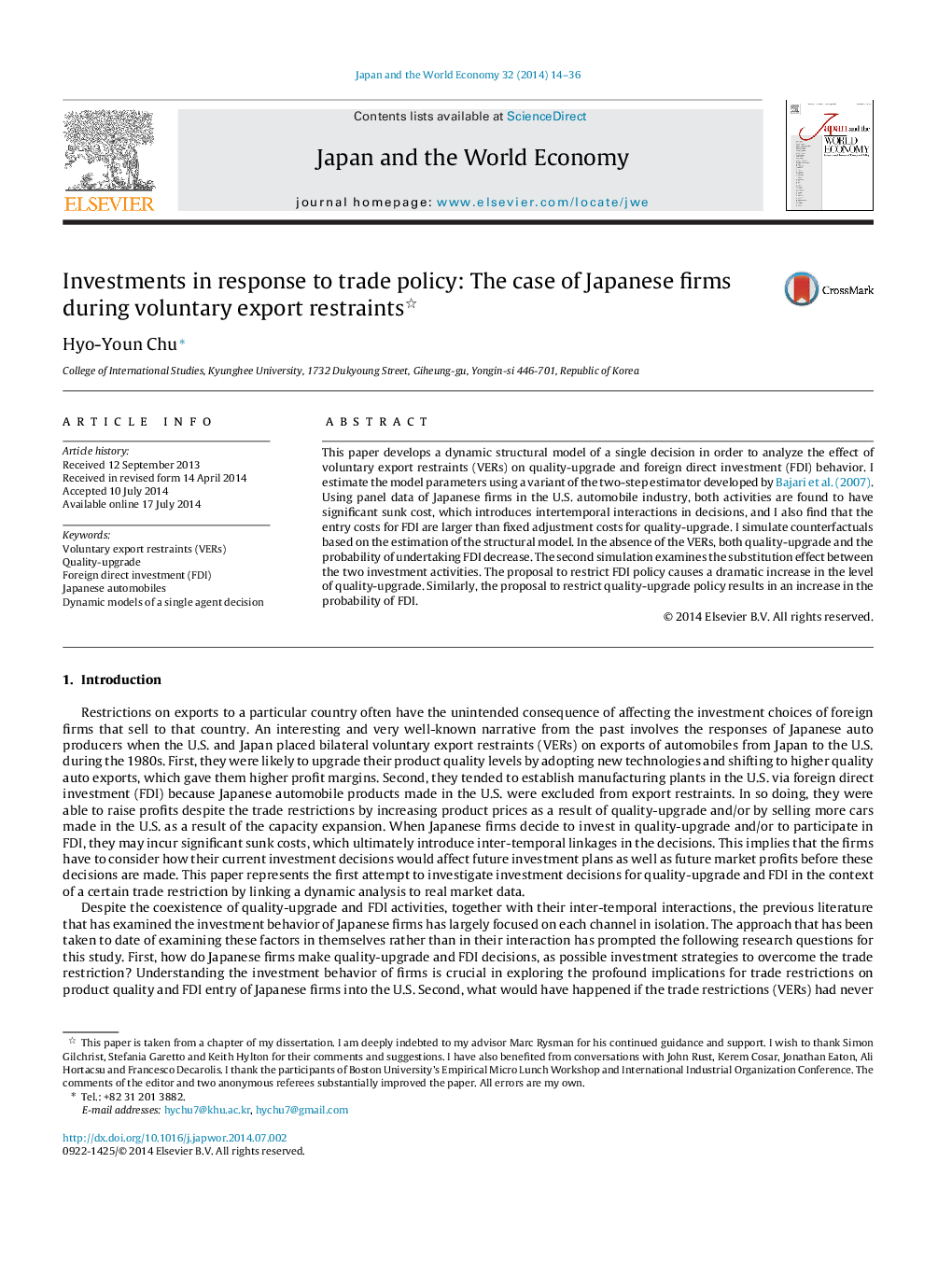| Article ID | Journal | Published Year | Pages | File Type |
|---|---|---|---|---|
| 5086113 | Japan and the World Economy | 2014 | 23 Pages |
Abstract
This paper develops a dynamic structural model of a single decision in order to analyze the effect of voluntary export restraints (VERs) on quality-upgrade and foreign direct investment (FDI) behavior. I estimate the model parameters using a variant of the two-step estimator developed by Bajari et al. (2007). Using panel data of Japanese firms in the U.S. automobile industry, both activities are found to have significant sunk cost, which introduces intertemporal interactions in decisions, and I also find that the entry costs for FDI are larger than fixed adjustment costs for quality-upgrade. I simulate counterfactuals based on the estimation of the structural model. In the absence of the VERs, both quality-upgrade and the probability of undertaking FDI decrease. The second simulation examines the substitution effect between the two investment activities. The proposal to restrict FDI policy causes a dramatic increase in the level of quality-upgrade. Similarly, the proposal to restrict quality-upgrade policy results in an increase in the probability of FDI.
Keywords
Related Topics
Social Sciences and Humanities
Economics, Econometrics and Finance
Economics and Econometrics
Authors
Hyo-Youn Chu,
